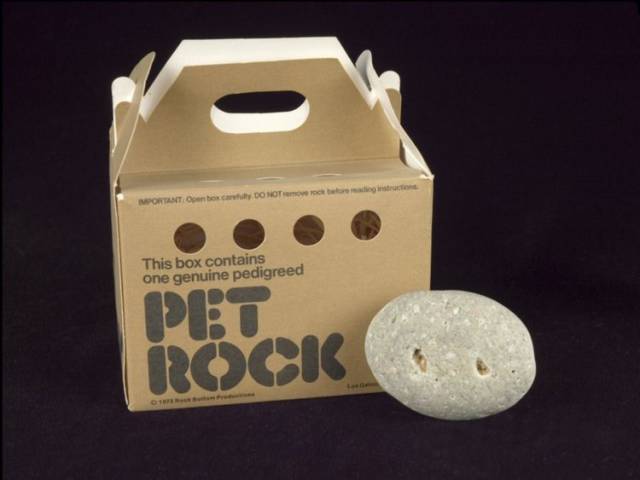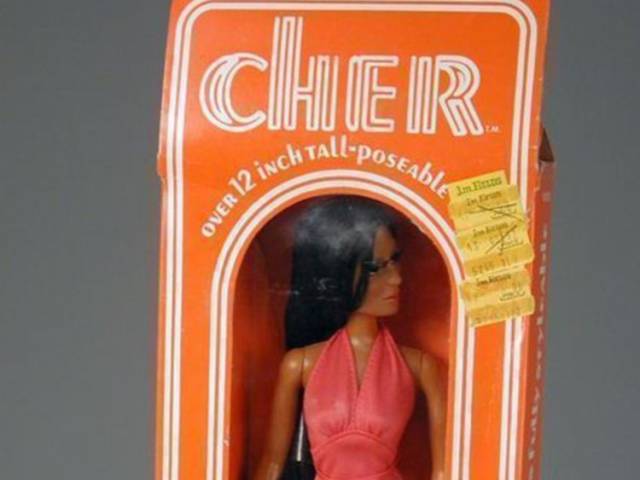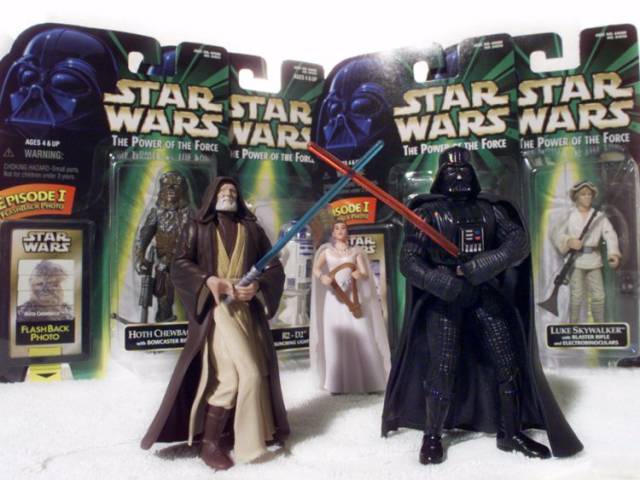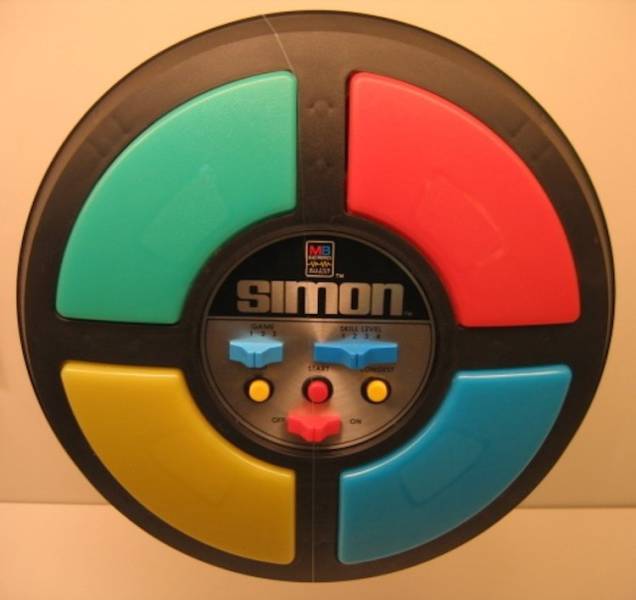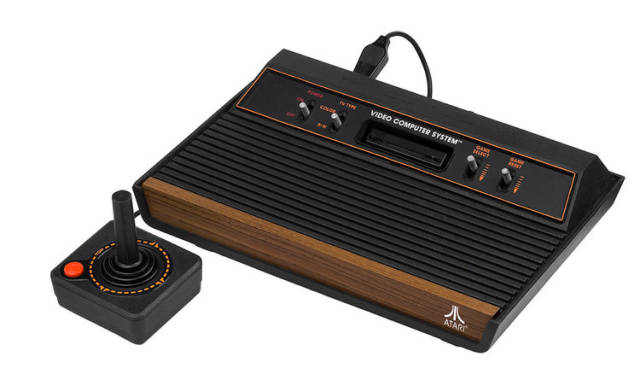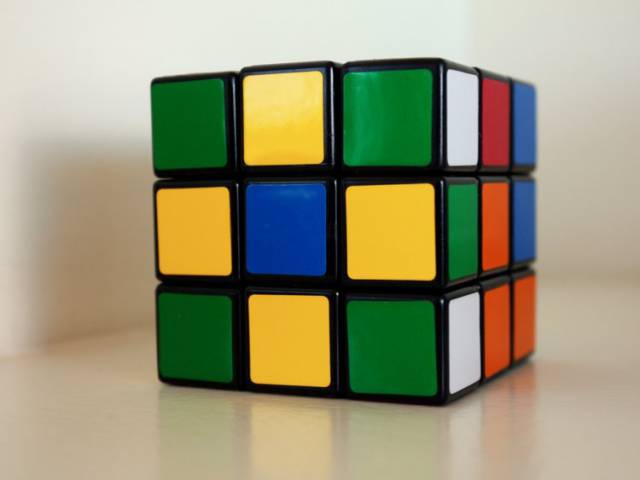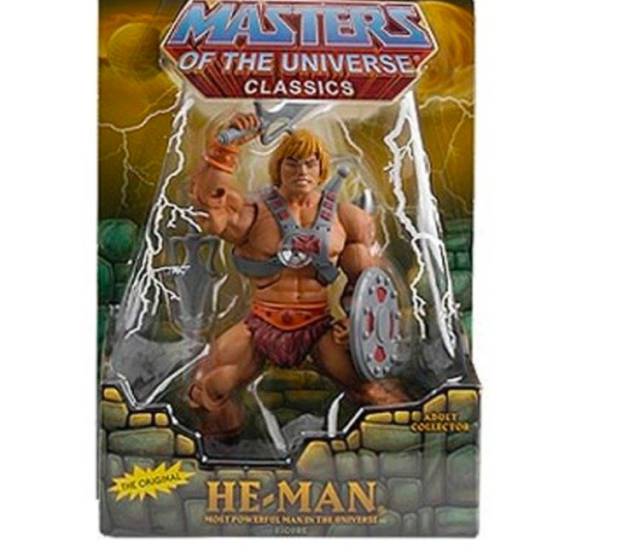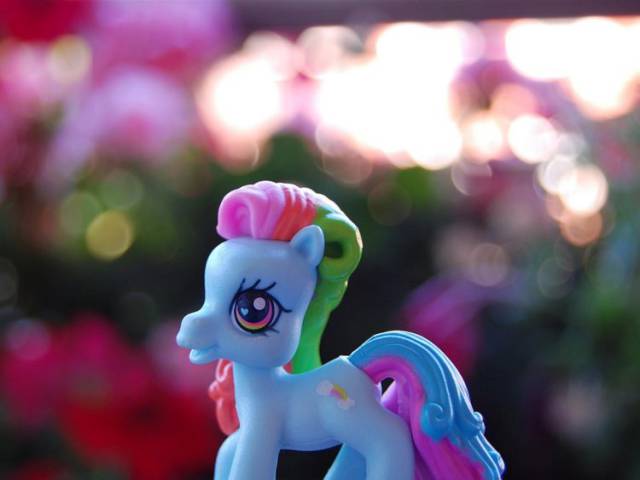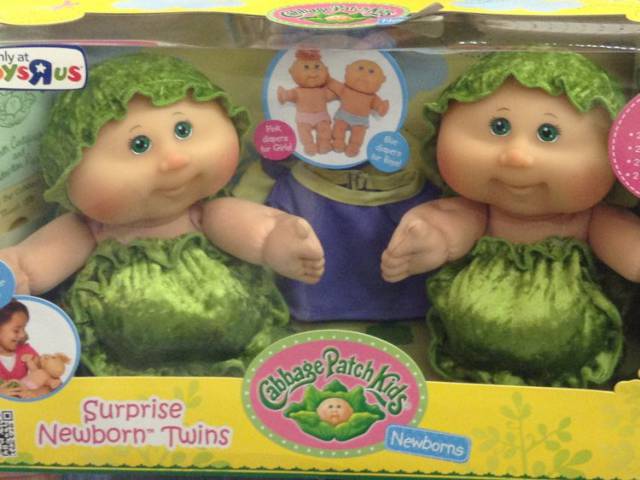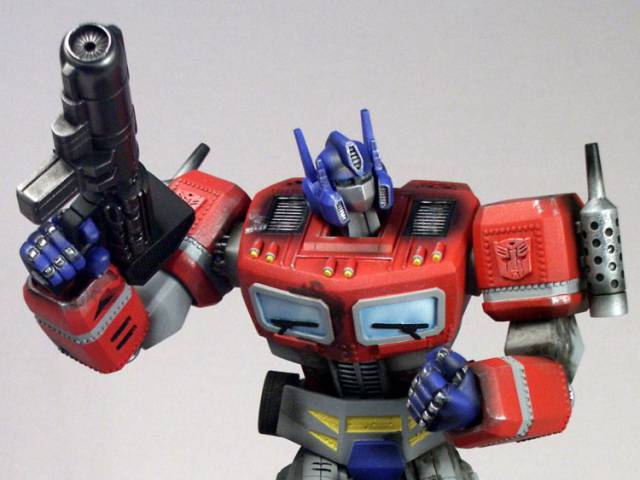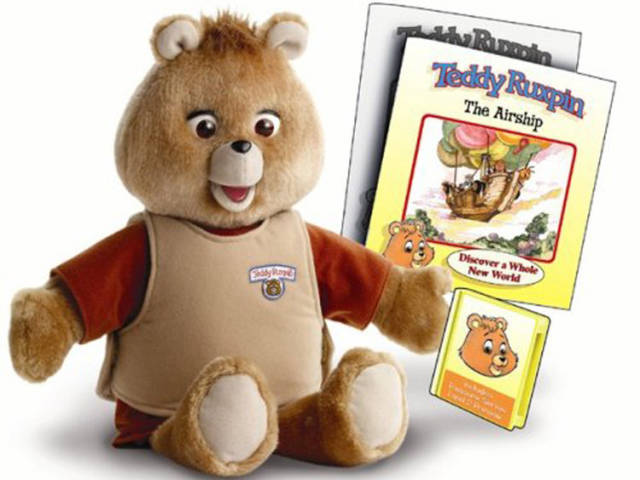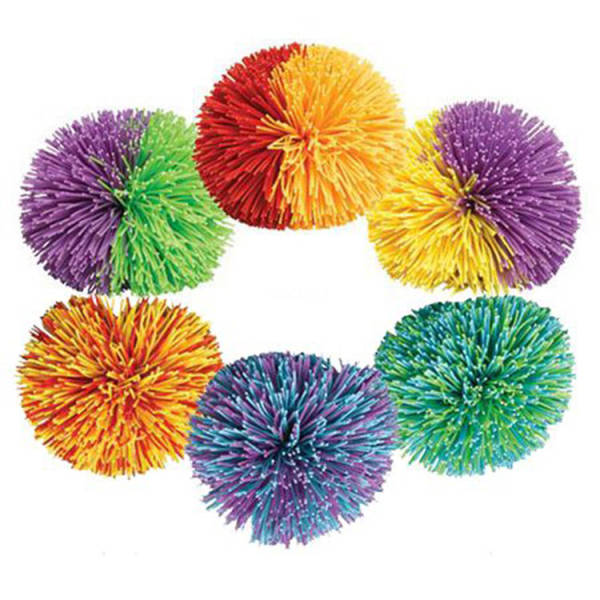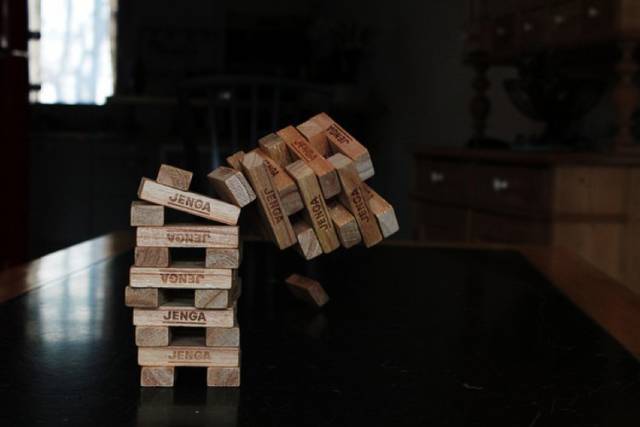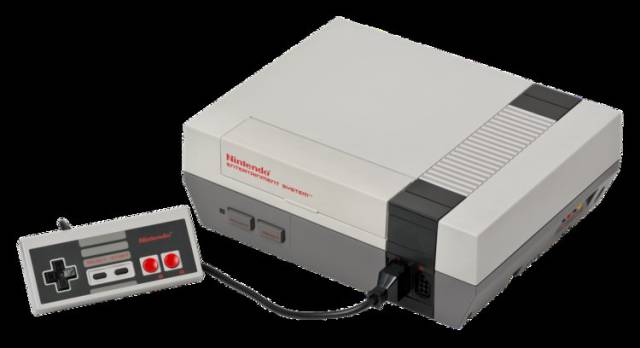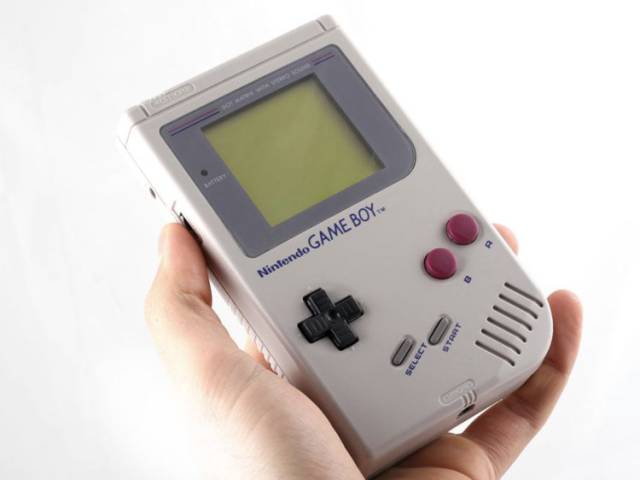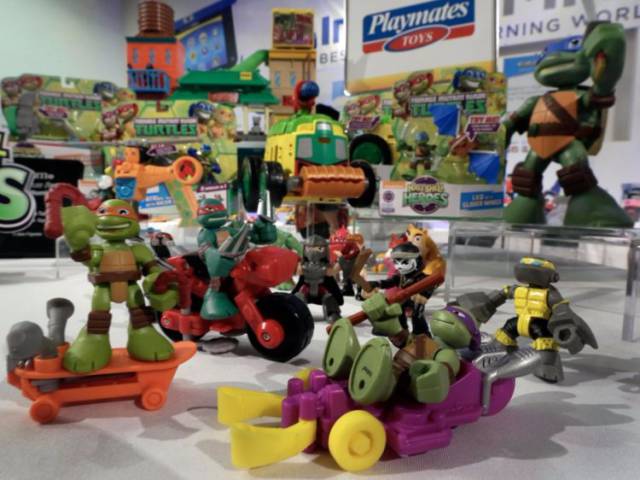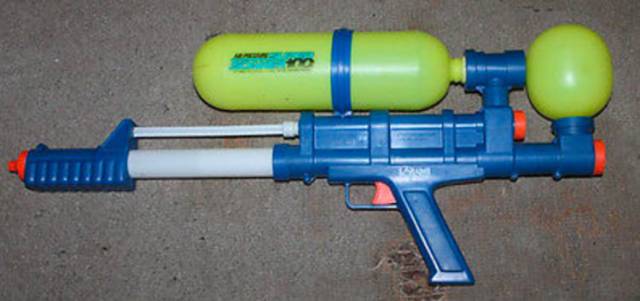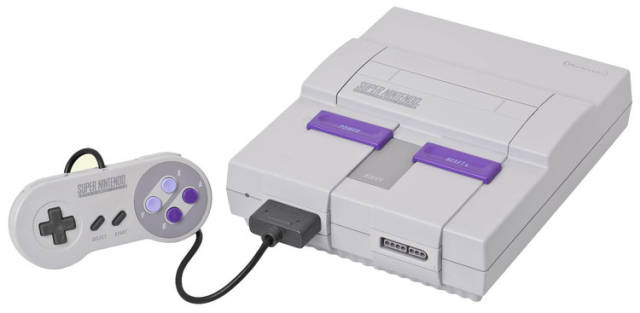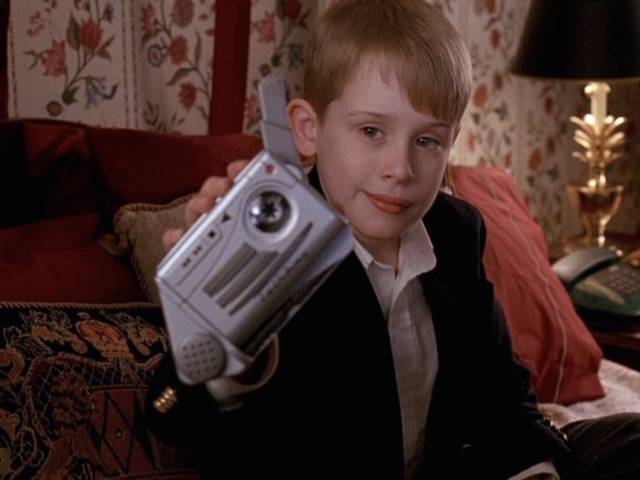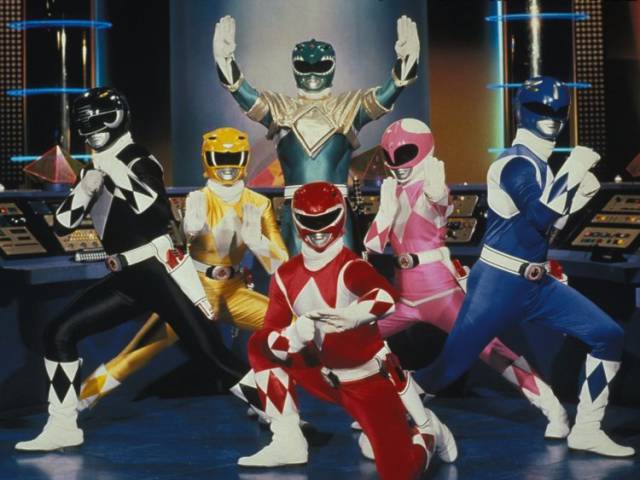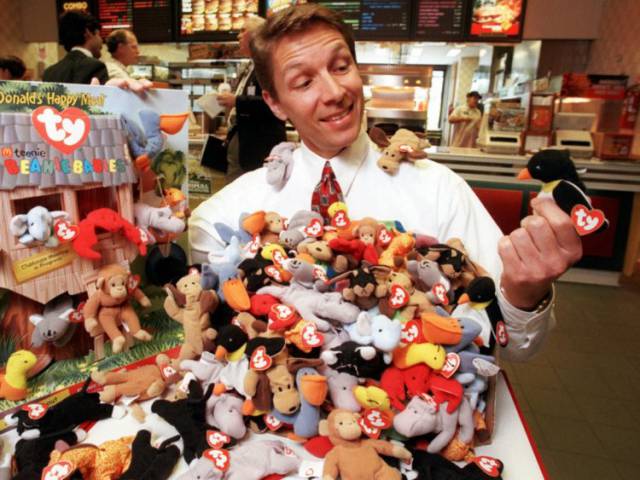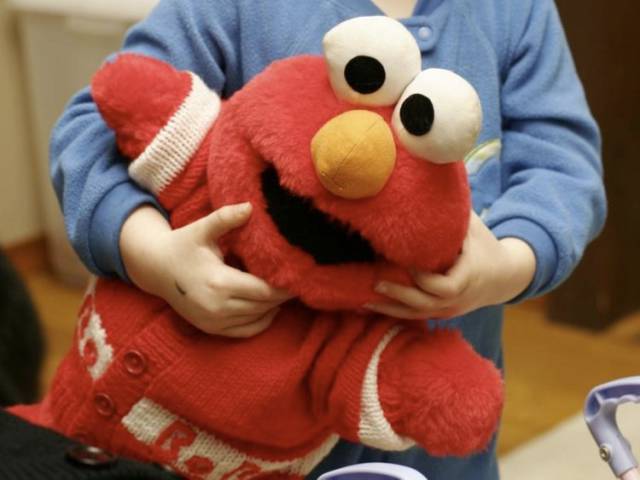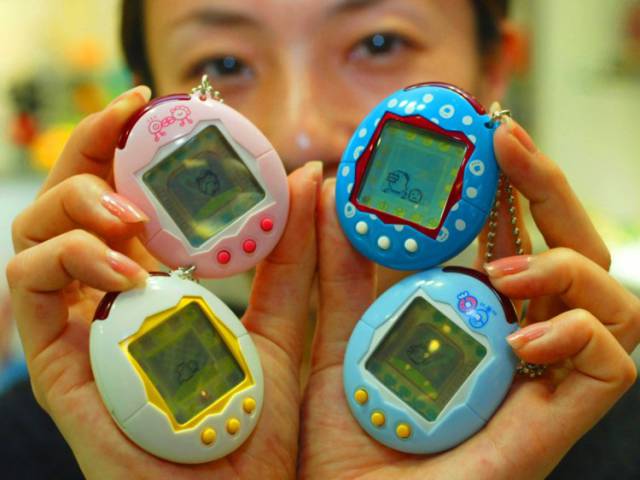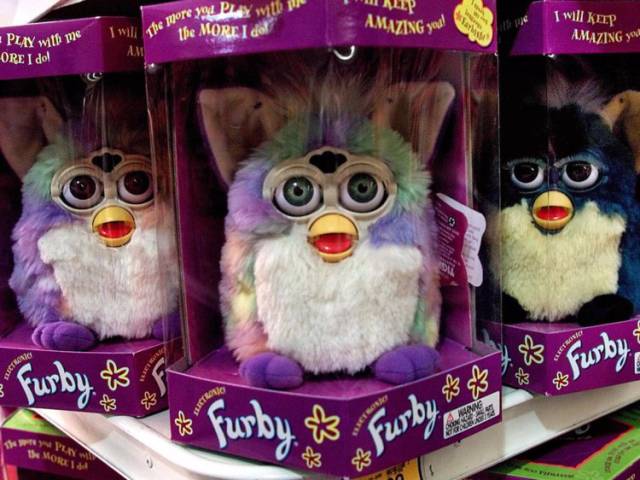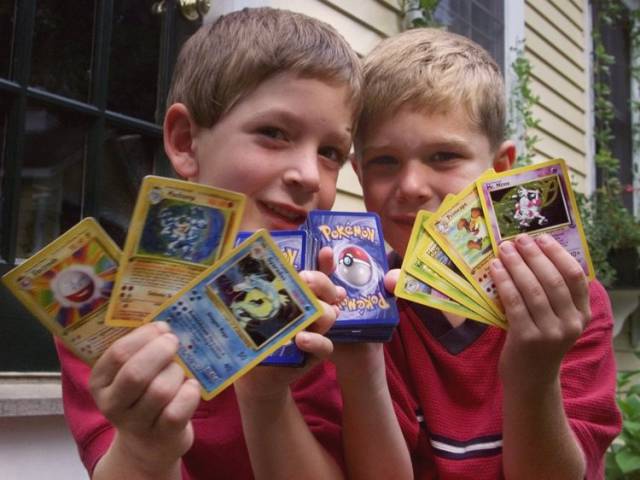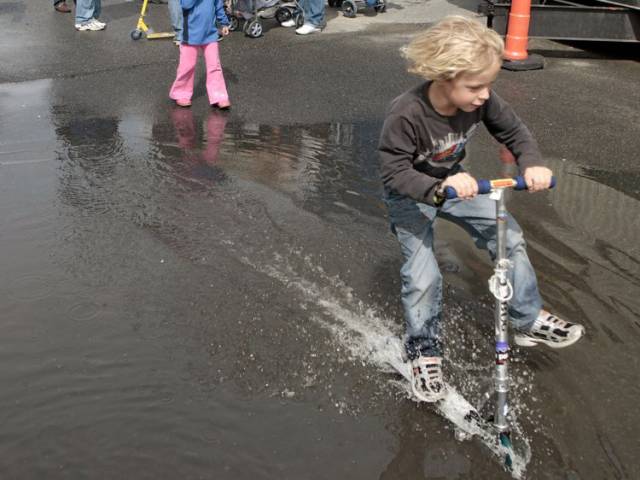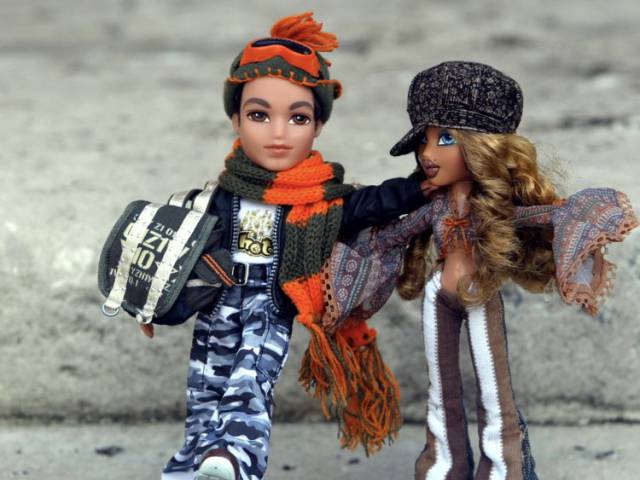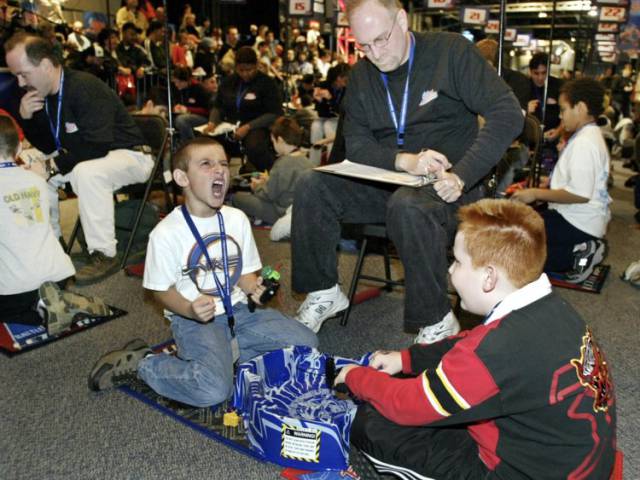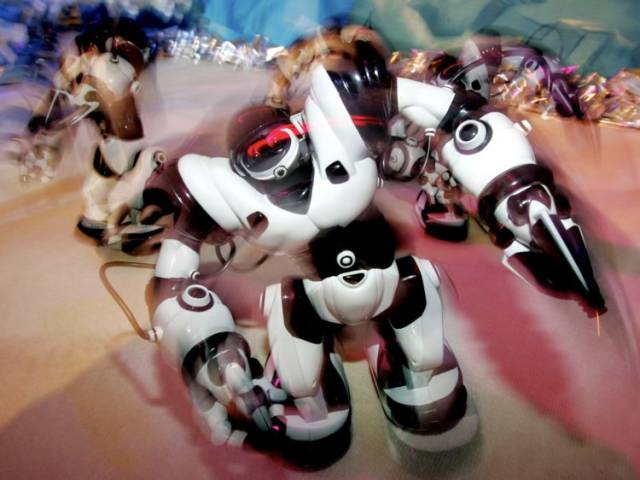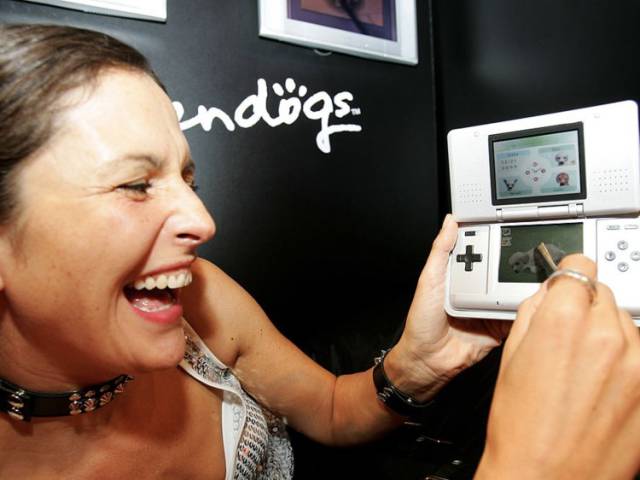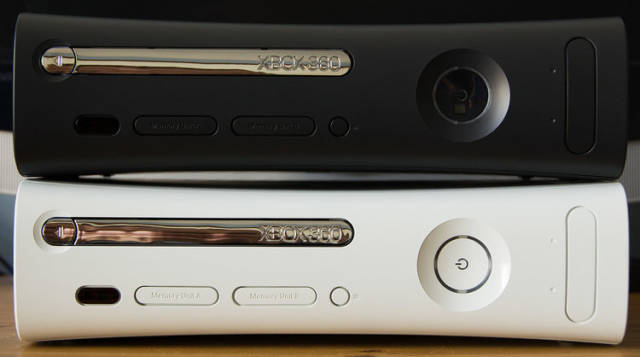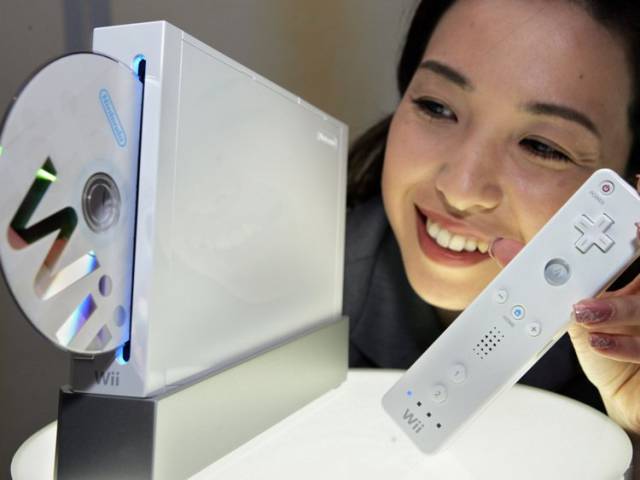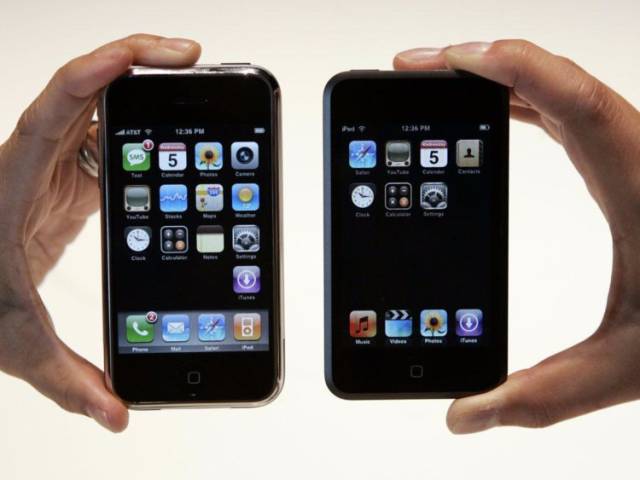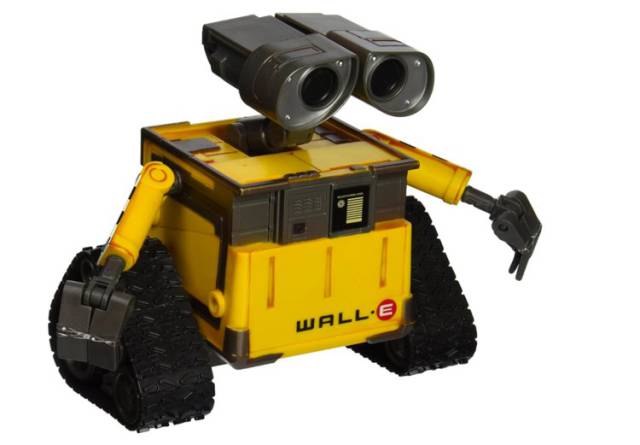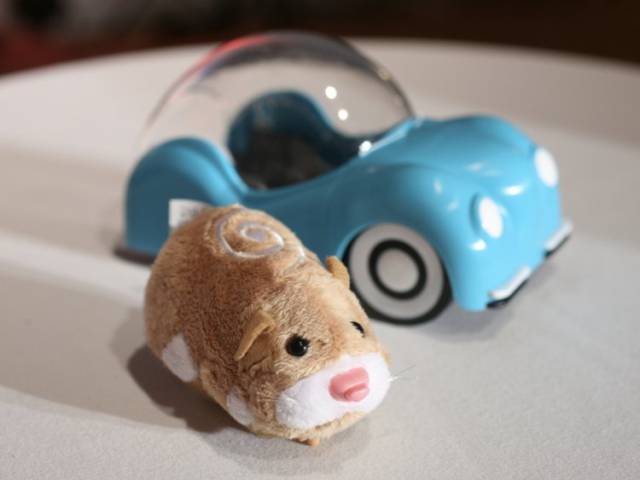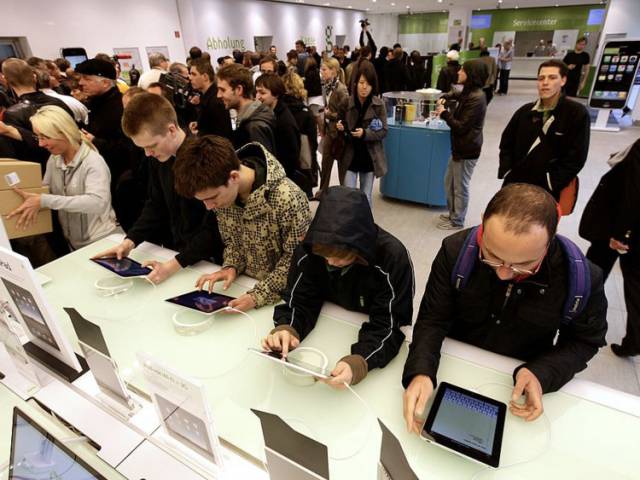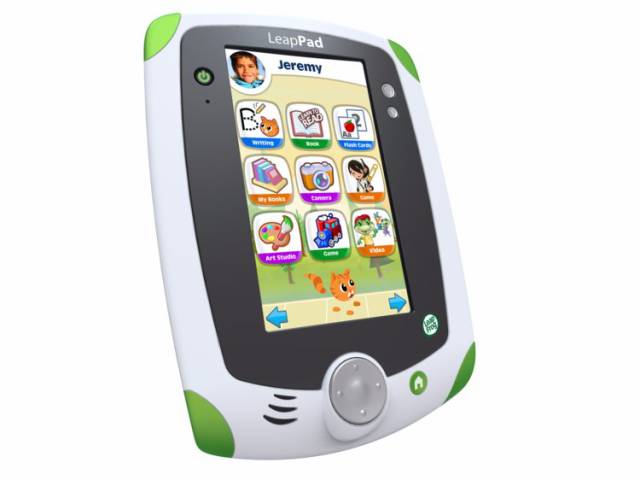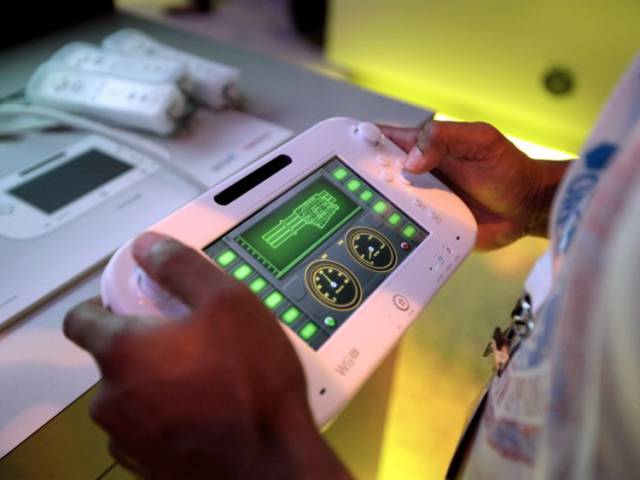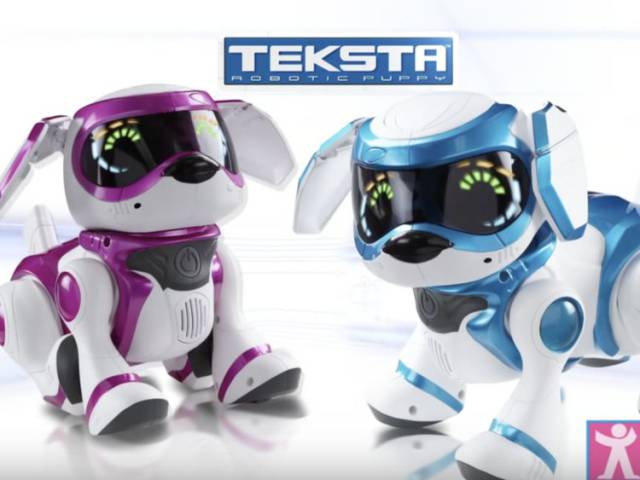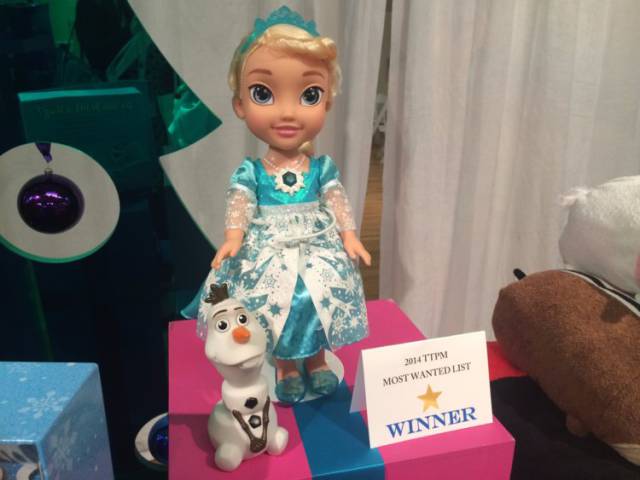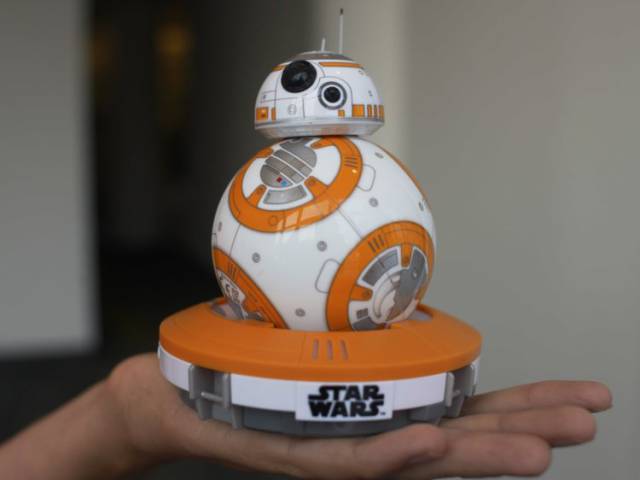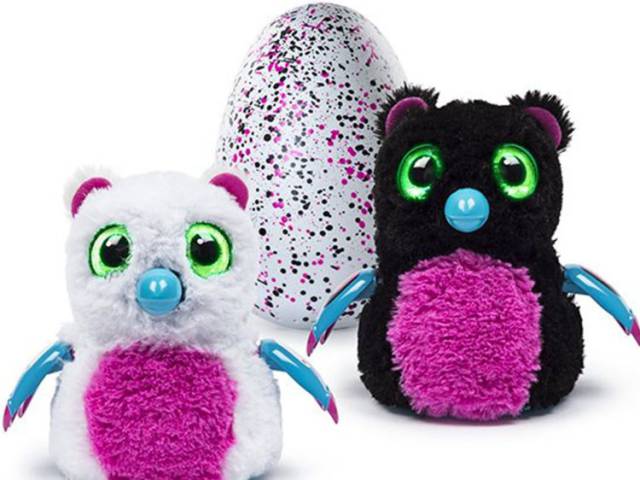1975: The Pet Rock
Yup, this gimmicky collectible was a huge success after creator Gary Dahl came up with it. The smooth stone was marketed as the perfect pet, because it took minimal effort to take care of — you literally had to do nothing. Though the fad ended pretty quickly, Dahl's simple idea made him a millionaire.
1976: The Cher doll
Sonny Bono and Cher both got dolls to coincide with their variety show. The dolls were a part of a celebrity line by Mego to compete with the popularity of Barbie. And for a time, Cher did. Hers was the best-selling doll of 1976.
1977: "Star Wars" action figures
No one knew how large the "Star Wars" universe would grow when the first movie was released in 1977. But they quickly learned that demand was high for movie merchandise after the available action figures sold out and Kenner, the toy company in charge of the figures, had to sell certificates that people could redeem for toys the following year. Now, "Star Wars" continues to be an unbeatable franchise.
1978: Simon
The Simon electronic game challenged your memory to do what Simon said. The four colored buttons each lit up and made a noise when activated. You had to repeat the series as it went along, got harder and faster until you messed up, and then the game was over.
1979: The ATARI 2600
The Atari Video Game Computer System was a home video game console that revolutionized the gaming industry thanks to its interchangeable cartridges. People could play multiple games on one system conveniently.
1980: The Rubik's Cube
Erno Rubik's cube puzzle became an iconic toy solved all over the world. The goal was to get all six of the sides to be one color by moving the rows in a particular order. According to the National Toy Hall of Fame, it's the most popular puzzle in history.
1981: He-Man toys
Before He-Man was a comic book character, animated series star, and live-action movie star, he was a toy created by Mattel. The first mini comic was launched along with the toys, and He-Man and the Masters of the Universe became a hit.
1982: My Little Pony
This million-dollar franchise has withstood the test of time, since it was first released. The small colorful plastic ponies were a hit through the '80s, but then the line was discontinued in 1990. Since then, the ponies have gone away and come back through four incarnations and have since launched multiple animated series and a feature film.
1983: Cabbage Patch Kids
The Cabbage Patch Kids doll line was first created in 1978. And by the early '80s, the soft dolls were huge. October 1983 heralded the start of the "Cabbage Patch Riots" as people drove hundreds of miles to find the dolls in stores and fought each other to get the last ones. These crazy kids are still going.
1984: Transformers
Before Transformers were made into an animated series, comic books, and a blockbuster live-action movie series, they were an incredibly popular toy line. The toy trucks and cars could transform into robots, so they were even cooler to have.
1985: Teddy Ruxpin
This animatronic bear became a beloved child's toy after it was released. The eyes blinked and his mouth moved as he read stories — thanks to a cassette player in his back — to children. His popularity led to the creation of an animated series.
1986: Koosh Ball
These balls were made of rubber strings attached to a squishy middle, so you could throw them, and they wouldn't hurt if you couldn't catch. The bright colors were perfect for kids.
1987: Jenga
Jenga is a uniquely stressful game that consists of building a tower of wooden blocks, removing them one at a time, and replacing them on the top of the tower. Each move makes the tower taller and unstable. You don't want to be the one to knock it down. Jenga was trademarked in 1983, but the game didn't gain popularity until a few years later.
1988: The Nintendo Entertainment System (NES)
This home video game system changed the gaming industry for the better. The company teamed up with various developers to create a collection of groundbreaking games that have launched franchises that continue to this day— like Super Mario. The success of this system paved the way for Nintendo's continued prosperity.
1989: The Game Boy
Nintendo entered the handheld video game field for the second time with the Game Boy, following the Game & Watch, and it was an instant smash. You could take ths system and the game cartridges anywhere. The system has since been updated multiple times, but the Game Boy is an icon.
1990: "Teenage Mutant Ninja Turtles" action figures
The Teenage Mutant Ninja Turtles (TMNT) were four turtles named after Renaissance Italian artists and trained in combat by their rat sensei. The characters first appeared in comics in 1984, but an animated series soon followed and their popularity skyrocketed. Toys, merchandise, and games became must-haves. To this day, TMNT are crushing the toy field thanks to the popularity of recent film adaptations.
1991: The Super Soaker
This brand of water gun was an absolute blast to use. All you had to do was fill it with water, pump it up, and shoot. Thanks to some crazy fun ads, these guns shot to popularity.
1992: The Super Nintendo Entertainment System (NES)
Nintendo's follow-up to the original NES was a complete success. The graphics were better, the controls were better, and the games were better. It was everything people loved about the original but just improved.
1993: The Talkboy
This portable cassette player and recorder was originally envisioned as a fake prop for Kevin McCallister (Macaulay Culkin) in "Home Alone 2: Lost in New York." A working retail version was released the same day as the movie and it quickly become a hot commodity.
1994: "Mighty Morphin Power Rangers"
The live-action TV series premiered in 1993 as the first in what would be become a huge pop culture phenomenon. Since the original show aired, the Power Rangers have been brought back to life in various shows, movies, and games, and the subsequent action figures and merchandise have all been popular.
1995: Beanie Babies
This bean-filled line of stuffed animals was launched in 1993, but it wasn't until 1995 when the craze began and people started to collect them. The company created creatures for a limited time, which drove the prices up as people tried to collect them all.
1996: The Tickle Me Elmo
Elmo has a very distinctive laugh on "Sesame Street." And in 1996, this laugh was made readily available through the plush toy Tickle Me Elmo. All you had to do was tickle the toy. It became incredibly popular and shortages led to some violence between shoppers in the weeks before the holidays.
1997: The Tamagotchi
The Tamagotchi was a handheld simulation game where you had to feed, play with, and take care of a virtual pet. Early versions of the game required constant attention, because the pet could die without frequent interaction. The game has since become more popular through video game versions.
1998: The Furby
These robotic talking creatures were simultaneously cute and creepy, which may be why Furbies became so popular. They even have their own language: Furbish. Millions of these big-eared creatures were sold during their first three years and, somehow, they are still around.
1999: Pokémon cards
Pokémon established itself as one of the biggest franchises in the world, starting with the Game Boy game released in 1996. From an anime TV series to movies, the franchise continued to grow. But the 1998 United States release of the trading cards and other merchandise helped propel the franchise even further. Games are still being released to this day. And with the success of apps like Pokémon Go, their fanbase is as big as ever.
2000: The Razor Scooter
The Razor Scooter was a foldable, compact transportation toy for kids to ride around on. Within the first six months of it being on the market, over 5 million scooters were sold and it was named toy of the year in 2001. The popularity grew after people began using them for stunts.
2001: Bratz dolls
Four dolls originally made up the Bratz line when MGA Entertainment launched the fashion toys. Their big heads, heavy use of makeup, and unique fashion differentiated them from the ever-popular Barbie. The dolls have achieved immense success and have led to spin-offs and media ventures, including a movie, a TV series, and video games.
2002: The Beyblade
Though initially launched in 2000, Beyblades began to be sold internationally by Hasbro in 2002. The toy let you launch spinning tops on the ground and "battle" others in a small plastic stadium by smashing into them. Kids even entered official competitions against each other. The toy's popularity resulted in a TV series.
2003: The Robosapien
This robot came pre-programmed with moves that it could do, but it could also be controlled by a remote control. He could pick things up and throw them, as well as broadcast vocals.
2004: The Nintendo DS
The Nintendo DS was a handheld game console that featured dual screens, one of which was a touchscreen. It was an experimental system meant to complement Nintendo's other consoles, but became successful on its own. As of March 2016, the DS has become the best-selling handheld system to date.
2005: The Xbox 360
The Xbox 360 was the follow-up to the original Xbox and allowed users to connect to the internet for game downloads and updates, which has since become an integral part of the video game industry.
2006: The Nintendo Wii
Nintendo's follow-up to the GameCube, the Wii was released in 2006 and introduced its new handheld controller. It was met with great success and earned the titles of best of show and best hardware at the Electronic Entertainment Expo (E3) in 2006.
2007: iPod Touch
When the iPod Touch launched, it was called the "iPhone without the iPhone" because it had most of the features of an iPhone without the cellular network. The handheld device made the iPod easier to use and gave it more functions.
2008: "WALL-E" toys
Disney once again had a hit animated film with "WALL-E" in 2008, and the merchandise following the film's release complemented it. From plush toys to an interactive action figure, there was something for every kid that loved the movie.
2009: ZhuZhu Pets
The adorable plush robotic hamsters were originally called Go Go Hamsters in the UK, and became a huge hit during the Christmas season. They were originally sold for $9, but shortages and demand pushed them up to $60 each. They have since spawned video games, a Disney cartoon, and a straight-to-DVD movie.
2010: The iPad
The Apple iPad was first released in April 2010, revolutionizing the way people used tablets. The touchscreen tablet would go on to sell 15 million units before the second generation iPad was released in 2011.
2011: The LeapPad Explorer
The portable tablet from learning company LeapFrog was designed just for kids. The touchscreen device could have educational games downloaded via apps or use cartridges. It was sturdier than an iPad, so it was a good alternative for little kids.
2012: The Wii U
Nintendo's Wii was a portable update to the Wii and was better to compete with the X-Box 360 and PlayStation 3. It was a hit, selling more than 3 million units by the end of 2012.
2013: Tekno the Robotic Puppy
The 2013 version of Tekno was the third iteration of the robotic puppy. It came in multiple colors and was controlled via smart devices and tablets. It answered to basic commands and could do back flips.
2014: "Frozen" dolls
Disney's "Frozen" dominated the box office after its November 2013 release and subsequently dominated the toy industry the following year. Olaf plushies, castle sets, and Elsa dolls were sold out everywhere.
2015: The "Star Wars" BB-8 toy droid
When Disney introduced BB-8 in "Star Wars: The Force Awakens" to the world, people instantly fell in love. So it was no surprise that their rolling BB-8 toy sold out on its first day of availability. It's controlled via an app, responds to voice commands, and makes adorable noises.
2016: Hatchimals
Though officially only launched in October of 2016, these robotic creatures that hatch themselves from eggs became incredibly popular during the Christmas season. Demand was so high that the New York Times called it the "elusive toy of the holiday season."

